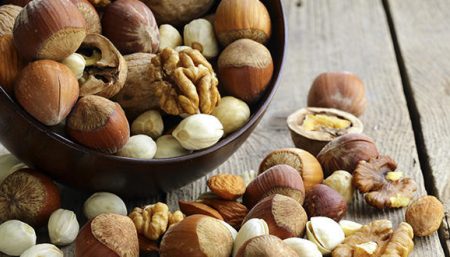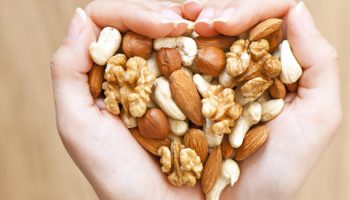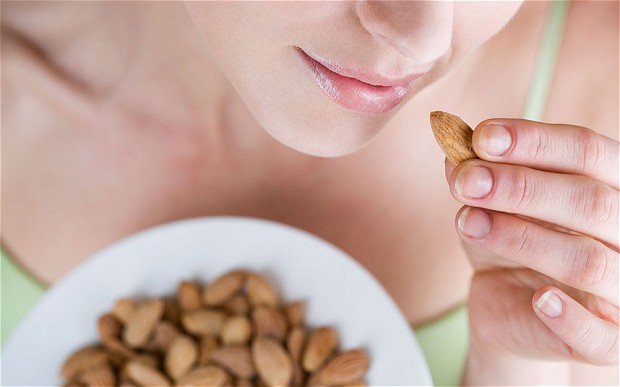
Snacking is a universal behaviour around the world leaving more and more women to decide, what to eat during a craving attack.
A new study published in the October issue of the European Journal of Clinical Nutrition found that study participants eating 1.5 ounces of dry-roasted, lightly salted almonds every day experienced reduced hunger and improved dietary vitamin E and monounsaturated (“good”) fat intake without increasing body weight.
Why Eat Almonds as Snack?
- Nutritionally Dense: A one-ounce serving of almonds contains 161 calories, nearly 13 grams of unsaturated fat and 3.4 grams of fiber (that’s about 14% of the daily recommended value). Besides, almonds are a good source of potassium, calcium, vitamin E, magnesium, phosphorous, and iron.
- Blood Sugar Control : The antioxidants in almonds help control blood sugar and diabetes. A large study out of Harvard University found that high daily magnesium intake reduced the risk of developing diabetes by 33 percent. Therefore, including more magnesium-rich foods like almonds in your diet is a smart move.
- Assist in greater Weight loss: According to a study published Almonds vs complex carbohydrates in a weight reduction program ” Low Calorie Dietsupplementation with almonds, in contrast to complex carbohydrates, was associated with greater reductions in weight/BMI (-18 vs -11%), waist circumference (WC) (-14 vs -9%), fat mass (FM) (-30 vs -20%), total body water (-8 vs -1%) and systolic blood pressure (-11 vs 0%), P=0.0001-0.05.” A 62% greater reduction in weight/BMI, 50% greater reduction in WC and 56% greater reduction in FM were observed in the almond-LCD as compared to the CHO-LCD intervention.
- Almonds for Lean Muscles: Eating almonds can also lead to more energy and stronger muscles. A handful of almonds has more protein than an egg, and contains energy-boosting manganese and copper, which limit the free radicals that can hinder mitochondria (the dynamos that power our cells).
- Good Source of Vitamin B2: Almonds are a good sources of riboflavin, or vitamin B2, which is an essential nutrient for producing oxygen-based energy in the body. They provide 1.01mg (60% DV) of vitamin B2 per 100 gram serving, that is 1.45mg (85% DV) of riboflavin per cup of whole almonds, or 0.28mg (17% DV) per ounce, and 0.012mg (1% DV).
- Protection against heart disease: Almonds raise levels of HDL cholesterolwhile lowering LDL. They’re also filled with monounsaturated fats that can reduce your risk of heart disease even more. Almond skin flavonoids alone enhanced LDL’s resistance to oxidation by 18%, when almond meat’s vitamin E was added, LDL’s resistance to oxidation was extended by 52.5%! Almonds can reduce cholesterol levels as much as first generation statin drugs.
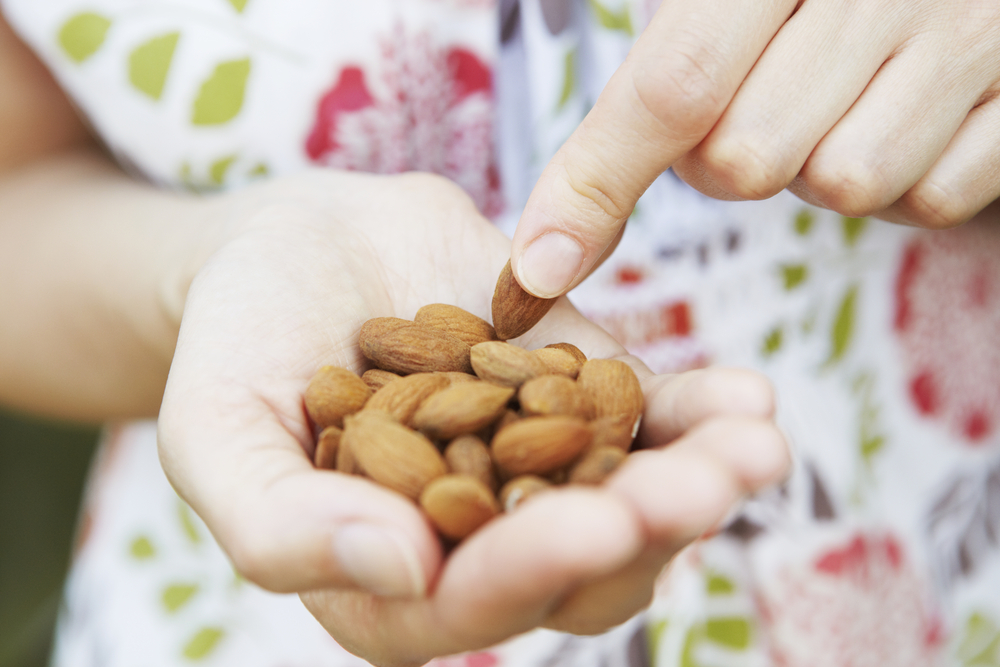
- Anti-aging Benefits: Jeffrey Blumberg, Ph.D., senior scientist and director of the Antioxidants Research Laboratory at Tufts University identified a unique combination of flavonoids in almonds. Further blood tests demonstrated that eating almonds with their skins significantly increases both flavonoids and vitamin E in the body. This could have significant health implications, especially as people age.
- Essential Part of Healthy Diet: A study published in the British Journal of Nutrition clearly indicated that intake of trans fatty acids, animal protein, sodium, cholesterol and sugars significantly decreased in participants (43 men and 38 women) by 14, 9, 21, 17 and 13%, respectively, who were told to eat approximately 2 ounces or one-quarter cup of almonds daily with no other instructions about change in their diet, and watched for an additional 6 months. Besides, the study participants’ intake of health-promoting monounsaturated fatty acids, polyunsaturated fatty acids, fiber, vegetable protein, vitamin E, copper and magnesium significantly increased by 42, 24, 12, 19, 66, 15, and 23%, respectively.
- Help Prevent Gallstones: Twenty years of dietary data collected on over 80,000 women from the Nurses’ Health Study shows that women who eat least 1 ounce ofnuts (a handful of almonds), each week have a 25% lower risk of developing gallstones.
Practical Tips on Adding Almond to Diet:
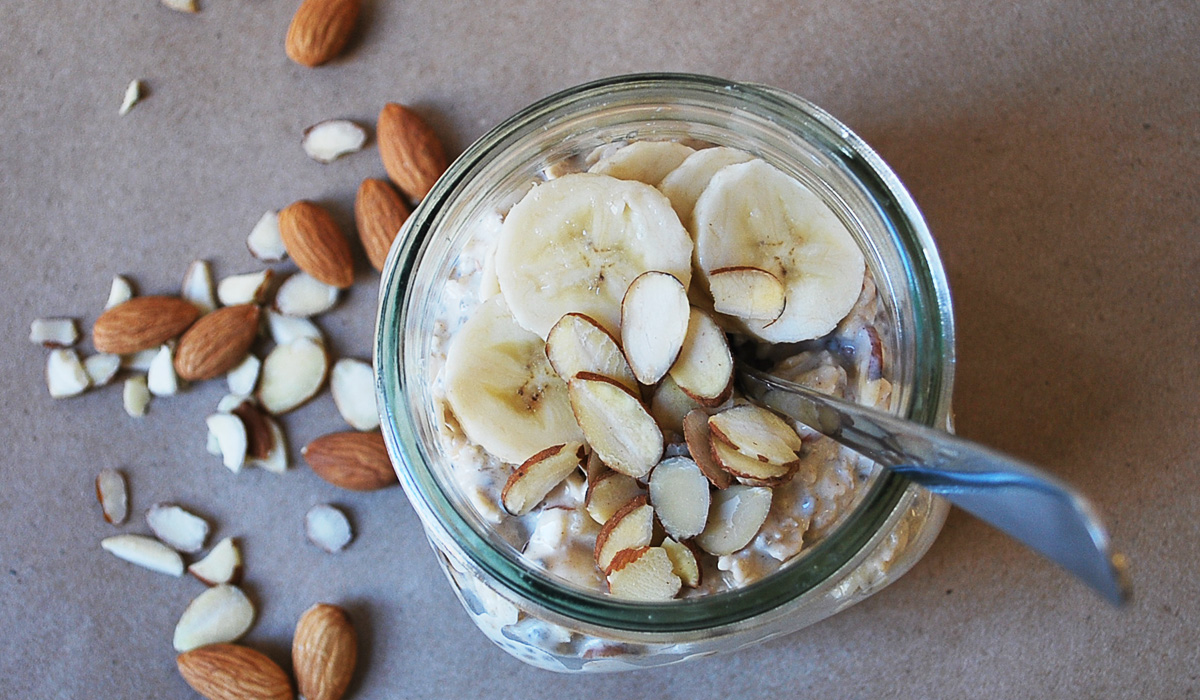
- Add a punch to plain yogurt by mixing in some chopped almonds and dried fruit.
- Enhance a healthy sauté of curried vegetables with sliced almonds.
- Add some almond butter to a breakfast shake to boost its taste and protein content.
- Almonds and apple slices make a wonderfully simple, on-the-go power snack.
- Make a delightful cold rice salad with almonds, fresh garden peas and currants.
- Add sliced almonds to chicken salad.
Ref:
- http://www.ncbi.nlm.nih.gov/
- http://www.whfoods.com/
- http://www.medicalnewstoday.
com/ - http://www.nutraingredients.
com/
Disclaimer
The Content is not intended to be a substitute for professional medical advice, diagnosis, or treatment. Always seek the advice of your physician or other qualified health provider with any questions you may have regarding a medical condition.
